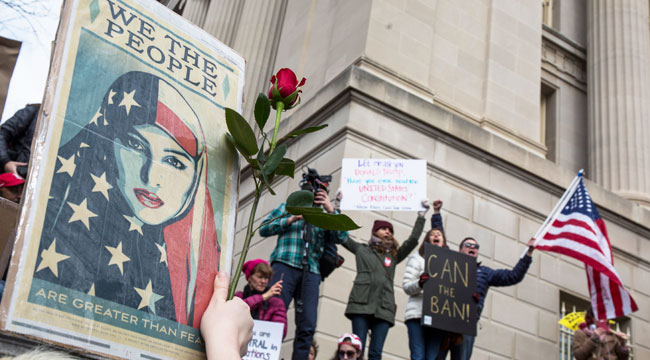
Earlier this week, the Supreme Court temporarily restored Donald Trump’s most recent travel ban. The controversial policy has seen multiple incarnations with the first version banning refugees from seven Muslim-majority countries from entering the U.S. Since then, Trump’s “watered down” version only bans refugees from six of those countries (Iraq was removed from the list). And on Tuesday, SCOTUS went ahead and approved the Trump administration’s request to block most refugees from entering the country.
This move will overturn a federal appeals court ruling and potentially impact 24,000 refugees who had already been declared exempt after executing contracts with resettlement organizations. It’s yet another victory for the Trump administration in its quest to fight multiple federal court rulings that declared the travel ban to be unconstitutional.
It is, however, notable that the Trump administration has declined to challenge a recent 9th Circuit Court of Appeals ruling that blocked Trump’s ban from barring grandparents, cousins, and other close relatives from the country. USA Today summarized that decision when it happened:
In a unanimous ruling, three 9th U.S. Circuit Court of Appeals judges in Seattle rejected the administration’s interpretation of who should be allowed entry into the United States, saying “the government does not offer a persuasive explanation for why a mother-in-law is clearly a bona fide relationship, in the Supreme Court’s prior reasoning, but a grandparent, grandchild, aunt, uncle, niece, nephew, or cousin is not.”
The Supreme Court will hear arguments on the rest of Trump’s travel ban — including its constitutionality as a whole — on October 10.
